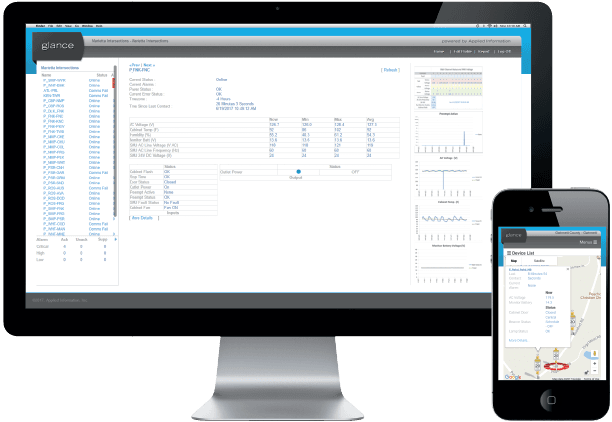
The rise of high-speed cellular connectivity, big data analytics, autonomous vehicles and other technologies has created enormous opportunities for local governments. These technologies could help reduce traffic congestion and emissions, improve safety and operational efficiency, and better engage citizens.
Let’s take a look at five cities that have started to adopt these technologies to become the next ‘smart cities’.
New York, New York
New York City is the most densely populated city in the country with eight million residents in 300 square miles. Given this population density, the city faces many unique challenges regarding everything from energy consumption to waste management. These are areas where it has been pioneering smart city technologies to solve the problems in unique ways.
The city introduced the Accelerated Conservation and Efficiency (ACE) program in 2013 to promote LED lighting in buildings. With occupancy sensors and dimmers, the LED lights are auto-dimmed when buildings are unoccupied, which dramatically cuts down on power usage in large skyscrapers. Mayor Bill de Blasio recently expanded these rules into requirements.
These solutions aren’t limited to energy consumption. The city’s sanitation department collects about 10,500 tons of garbage every day, making it the biggest sanitation department in the world. By introducing smart trash cans across the city, the department ensures that no time is wasted and avoids garbage overflows that have plagued cities like Los Angeles in recent months.
Boston, Massachusetts
Boston’s status as a smart city innovator shouldn’t surprise anyone, given its location near the Massachusetts Institute of Technology (MIT) campus and other high-caliber universities. However, the city’s approach to smart city technologies has evolved over time, from embracing the latest and greatest technologies to taking a more measured approach.
After years of failed pilot projects, the city’s Smart City Playbook encourages tech companies and researchers to take a step back from “data” and “algorithms” to focus on near-term tangible benefits. The goal is to avoid projects that result in “glossy presentations and a collective shrug” and focus on solving real problems for real people.
In addition, the city is engaging citizens in the smart city development process with its Beta Blocks Action Research project. The project is designed to promote public dialogue around smart city tools and create a venue for civic experiments. These experiments have historically included Smart Streets sensors and citywide autonomous vehicle testing, among other projects.
[content_upgrade cu_id=”3096″]Download our checklist of tech technologies that you can implement as a starting point for a smart city transformation.[content_upgrade_button]Click Here[/content_upgrade_button][/content_upgrade]
Atlanta, Georgia
Atlanta began pursuing smart city initiatives in 2015 with its Renew Atlanta bond issue. Since then, the city’s approach has evolved from creating a fiber network to doubling down on Internet-of-Things, or IoT, technologies that can connect infrastructure and deliver real benefits to citizens.
In September 2017, the SmartATL team partnered with the Georgia Institute of Technology to launch the North Avenue Smart Corridor. With over 100 IoT sensors, adaptive signal timing, and V2X communication, the 2.3 mile corridor was transformed from a busy and crash-prone corridor to a bike-friendly corridor with far less traffic congestion.
The SmartATL team’s long-term goal is to leverage the IoT and innovative technologies, such as sensors, artificial intelligence and data analytics, to measurably improve multimodal transportation, public safety, environmental sustainability, internal city operational efficiency and citizen and business engagement — a focus much broader than transportation.
Pittsburgh, Pennsylvania
Pittsburgh may be known for its football team and steel mills, but it’s quietly becoming a smart city leader.
The city received $10.9 million in funding from the U.S. Department of Transportation as part of its $165 million dedicated to smart city projects. Using these funds, it has been actively building smart traffic lights designed to improve pedestrian and cyclist access, reduce traffic congestion and ultimately save millions of dollars.
At the same time, the city partnered with Uber on its self-driving pilot program. The long-term goal is to connect these self-driving cars with its network of smart traffic signals to enable more efficient transportation. As an added bonus, Uber’s investment in the city will likely exceed $1 billion without requiring a single dollar of taxpayer funds.
Tampa, Florida
Tampa has focused its smart city efforts on transportation with the goal of paving the way toward connected vehicles downtown by next year. Its Smart Mobility Division is tasked with finding ways to incorporate new technologies and use data more effectively than its legacy systems, which were developed in the 1980s.
The city recently received a $21 million grant from the U.S. Department of Transportation to test V2X communications. Using these funds, it will equip as many as 1,600 residents with connected vehicle technologies and augment the Lee Roy Selmon Expressway with sensors to see more ways to reduce emissions and collisions, as well as improve cyclist and pedestrian safety.
[content_upgrade cu_id=”3096″]Don’t forget to download our checklist of technologies that you can implement as a starting point for a smart city transformation.
[content_upgrade_button]Click Here[/content_upgrade_button][/content_upgrade]
In addition, the city introduced an open data platform, mobility-as-a-service and advanced traffic management. The mobility-as-a-service pilot will test an app that enables travelers to pay for trips of various transportation modes, while additional cameras at intersections will provide data to machine learning algorithms that predict traffic flow.

How to Prepare Your City
Smart cities may offer a lot of benefits and long-term cost savings, but a lack of funding can make these technologies difficult to adopt. Grants can help cover some of these costs, but alternative funding or solutions are necessary to execute ambitious and advanced smart city projects.
Cities can also consider public-private partnerships. Private companies finance, operate and maintain the services, which may involve advertising or fees. For example, Kansas City installed kiosks through a private-public partnership that include advertisements to repay private partners.
Applied Information provides a unique cost-effective solution that involves adding connectivity to existing equipment rather than purchasing entirely new solutions. These capabilities can help convey many of the benefits and prepare cities for the future without requiring millions of dollars in upfront costs.
Contact us to schedule a consultation and learn more about how our smart city technologies can help you.
